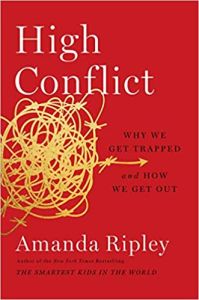Join getAbstract to access the summary!

Join getAbstract to access the summary!
Amanda Ripley
High Conflict
Why We Get Trapped and How We Get Out
Simon & Schuster, 2021
What's inside?
“High conflict” traps you in endless cycles of outrage and blame. Learn how to transform disputes into healthy conflict.
Recommendation
Conflict among people is inevitable and often valuable. But only healthy conflict leads humanity to a better future. In this engaging text, investigative journalist Amanda Ripley explores the toxic landscape of “high conflict” – disputes that reach an intractable state of binary opposition. Using examples from the lives of a lawyer-mediator turned politician, a gang leader turned peacemaker and many others, the author outlines the systemic nature of high conflict, its damaging characteristics, and the techniques and strategies that can help individuals and groups break free of the high conflict trap.
Summary
About the Author
As an investigative journalist, Amanda Ripley writes for The Atlantic and many other periodicals. She is the author of two other books: The Smartest Kids in the World: And How They Got That Way and The Unthinkable: Who Survives When Disaster Strikes – and Why.



















Comment on this summary